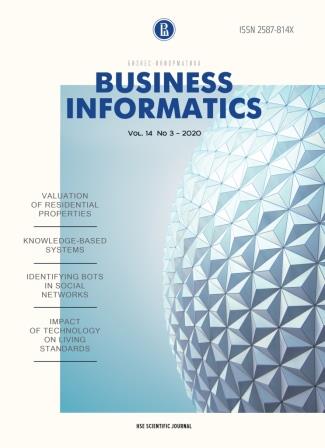Fuzzy regression model of the impact of technology on living standards
Abstract
This paper proposes a model of the impact of technology on the standard of living based on fuzzy linear regression. The Human Development Index (HDI) was chosen as a dependent variable as an indicator of the health and well-being of the population. The explanatory variables are the Network Readiness Index (NRI), which measures the impact of information and communication technologies (ICT) on society and the development of the nation, and the Global Innovation Index (GII), which measures the driving forces of economic growth. The analysis is based on data for 2019 for four groups of countries with different levels of GDP per capita. For developed countries, the positive and balanced impact of innovation and ICT on living standards has been confirmed. For two groups of developing countries (upper and lower middle income), the GII coefficient was found to be negative. A more in-depth analysis showed that this is due to the state of political and social institutions. This fact means that without a simultaneous increase in the maturity of institutions, stimulation of other areas of innovative development (education, knowledge and technology, infrastructure) leads to a decrease in the quality of life.


